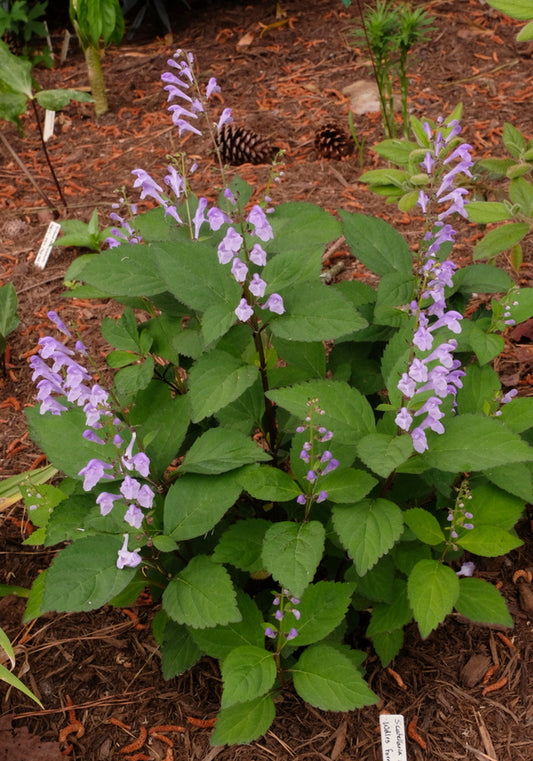Scutellaria are mostly small plants that look best in a container, a rock garden or planted in a drift without any taller competition nearby. Most species prefer full sun and once established are very drought tolerant.
-
Scutellaria 'Appalachian Blues' PP 34,854
Item #: 18351
Zones: 7a to 10b, at least
Dormancy: Winter
Height: 12" tall
Culture: Part Sun to Light Shade
Origin: United States Hybrid
Pot Size: 3.5" pot (24 fl. oz/0.7 L)
Regular price $22.00Regular priceUnit price per -
Scutellaria serrata
Item #: 9605
Zones: 7a to 10b, at least
Dormancy: Winter
Height: 18" tall
Culture: Part Sun to Light Shade
Origin: United States
Pot Size: 3.5" pot (24 fl. oz/0.7 L)
Regular price $22.00Regular priceUnit price per -
Scutellaria suffrutescens 'Texas Rose'
Item #: 2192
Zones: 7a to 9b
Dormancy: Winter
Height: 8" tall
Culture: Sun to Part Sun
Origin: Mexico
Pot Size: 3.5" pot (24 fl. oz/0.7 L)
Regular price $23.00Regular priceUnit price per
More Information About Scutellaria
Not to be confused with a Jewish head cloth, the skullcap genus Scutellaria is a member of the mint family, native around the world (including some in North Carolina), and recognized by its small, tubular, butterfly attracting flowers. The name scutellaria comes from the Latin for "small dish", which refers to the shape of the flower.
Scutellaria (Skullcap) Growing Conditions
Skullcaps are mostly small plants that look best in a container, a rock garden or planted in a drift without any taller competition nearby. Most species prefer full sun and once established are very drought tolerant. There are scutellaria species which flower at various times from spring to fall with little snapdragon-ish flowers.
Historically, species in the genus have been used as herbs, medicines, and for 'recreation', but our selections were chosen for ornamental reasons. There are several garden-worthy scutellaria species in the genus, most of which require decent drainage in cultivation.





